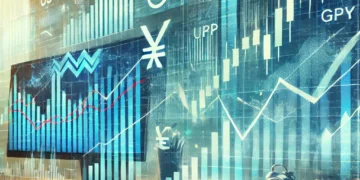Trading for Sustainability: A Comprehensive Guide to Long-Term Success
Introduction
In the world of financial trading, sustainability is not merely a buzzword but a critical strategy for long-term success and financial security. Sustainable trading involves practices that not only prioritize long-term profitability but also consider the broader economic, social, and environmental impacts. This comprehensive approach helps traders withstand volatile markets, adapt to economic changes, and maintain ethical standards. This essay explores the most sustainable ways to engage in trading, focusing on strategies that balance risk with responsibility and profit with prudence.
The Essence of Sustainable Trading
Sustainable trading goes beyond the pursuit of quick profits to encompass a holistic view of one’s trading activities and their wider implications. It involves:
- Risk Management: Implementing strategies to minimize losses and protect capital.
- Ethical Investing: Choosing investments that are socially responsible and environmentally sustainable.
- Long-Term Planning: Focusing on long-term gains rather than short-term fluctuations.
- Education and Adaptation: Continually learning about market trends, economic indicators, and new trading tools.
By embracing these principles, traders can create a resilient trading practice that not only survives but thrives in changing market conditions.
Strategies for Sustainable Trading
To trade sustainably, one must adopt various strategies that ensure profitability while also considering ethical and practical sustainability. Here are some effective approaches:
1. Embrace Risk Management Techniques
- Diversification: Spread investments across various financial instruments, sectors, and geographies to mitigate risks.
- Use of Stop-Loss Orders: Protect your capital by setting stop-loss orders to automatically sell at a pre-determined price.
- Position Sizing: Adjust the amount of capital allocated to each trade based on the volatility of the asset to avoid significant losses.
2. Focus on Long-Term Investments
- Avoid Overtrading: Frequent trading often leads to higher costs and increased risk. Sustainable trading involves fewer, well-considered trades.
- Long-Term Horizon: Invest in companies or assets that show potential for growth or stability over a longer period.
- Continuous Monitoring: Keep track of and adjust your investments based on long-term economic and sectoral trends rather than short-term market movements.
3. Prioritize Ethical and Socially Responsible Investing (SRI)
- Screen Investments: Choose companies that adhere to ethical practices, such as environmental sustainability, human rights, and fair labor practices.
- Impact Investing: Direct your investments into companies or projects that are expected to generate a measurable, beneficial social or environmental impact alongside a financial return.
4. Leverage Technology for Better Decision Making
- Automated Trading Systems: Use algorithms to make trading decisions based on set criteria, reducing the emotional aspect of trading.
- Advanced Analytics: Employ tools that analyze large datasets to predict trends and make informed decisions.
- Mobile Trading: Utilize mobile trading platforms to manage your investments on the go, ensuring continuous monitoring and flexibility.
Tools and Resources for Sustainable Trading
To effectively implement sustainable trading practices, traders need access to various tools and resources:
- Educational Platforms: Websites like Investopedia, Coursera, and Khan Academy offer courses on financial literacy, market analysis, and ethical investing.
- Trading Platforms: Choose platforms that offer robust analytical tools, real-time data, and resources for risk management.
- Financial Advisors and Ethical Investment Funds: These can provide guidance and investment opportunities that align with sustainable trading principles.
Sustainable trading represents a paradigm shift from traditional trading methods, focusing on long-term profitability, ethical investment, and risk management. This approach not only ensures financial success but also contributes to a more just and sustainable global economy. By adopting risk management techniques, focusing on long-term investments, prioritizing socially responsible investments, and leveraging advanced technology, traders can maintain a sustainable and profitable trading career.
In summary, the most sustainable way to trade is by integrating ethical considerations into trading strategies, utilizing advanced technological tools for better decision-making, and committing to continuous learning and adaptation. Such practices not only enhance the trader’s financial outcomes but also promote a healthier economy and society, proving that in trading, as in life, sustainability is the key to enduring success.

























